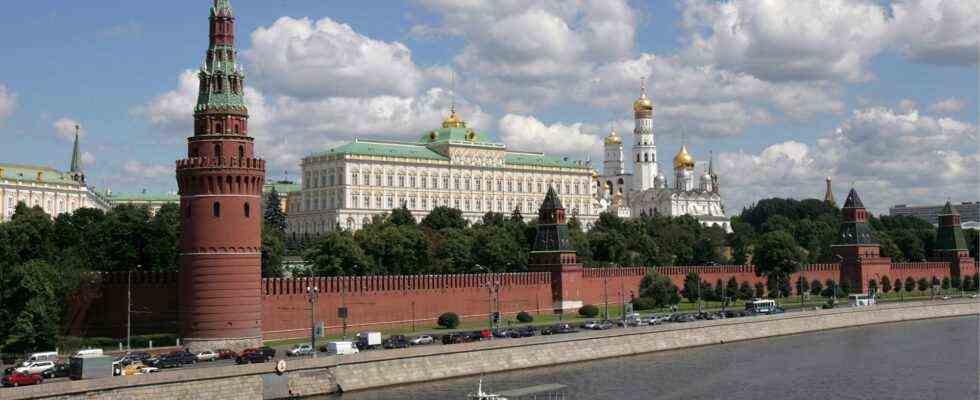Status: 13.09.2021 2:59 p.m.
Russia is also looking to the German general election. For the Kremlin it is clear: Chancellor Merkel will be missed. Green candidate Baerbock is viewed with particular suspicion.
For a long time, other topics were more important in Russia than the German federal election – mainly because the Duma election, the election to the Russian parliament, dominated the media.
But the second German triall attracted particular attention on Russian television. The tone between Laschet and Scholz was tougher this time, between the two of them there was sometimes a real crash: “From the first minute there is an exchange of blows between the Union candidate Armin Laschet and the Social Democrat Olaf Scholz,” it says on Russian television.
“The representative of the Greens, Annalena Baerbock, remains outside. Laschet speaks of money laundering in the finance ministry, which Scholz is currently in charge of. In terms of foreign policy, the SPD candidate insists on strengthening transatlantic cooperation.”
Baerbock’s positions are considered radical
The triell gave no answer to the question of which coalition will be the most likely after the election, according to the comment on Russian television. Nobody dared take cover on this question. In any case, Baerbock is not being traded as the successor to Chancellor Angela Merkel.
In Russia she is portrayed as a candidate with the most extreme demands: “Baerbock was the only one who did not refuse a vaccination requirement for certain professional groups, and she also had the most radical position with regard to climate protection.”
The Kremlin is looking forward to the German election
Most people in Russia are unlikely to be familiar with the names Baerbock, Laschet and Scholz. Many are certainly also surprised that Merkel is not running again for the election. The Kremlin is also preoccupied with the vacuum created by their withdrawal and their successors.
Alexander Kamkin, Germany expert at the European Institute of the Academy of Sciences, says: “The federal elections are of great importance to the Kremlin.” The Ministry of Foreign Affairs and others are very interested. A lot is being analyzed, there are expert panels. “I know that the Department for Europe in the Ministry of Foreign Affairs is constantly working on it and also doing the analysis. The situation is quite unpredictable,” said Kamkin.
Putin will miss Merkel as a constant, reliable partner.
Image: AFP
Merkel leaves a void
The Kremlin is holding back from making official comments. Political observers like Kamkin consider Baerbock to be a difficult negotiating partner from a Russian point of view. “The most uncomfortable partner will of course be Ms. Baerbock, because of the Greens’ economic and political agenda, especially when it comes to political values,” he says. “If the CDU and SPD stand for ‘Realpolitik’, then the Greens are a party based on ultra-liberal values.” According to Kamkin, some of these values contradict political reality.
Laschet and Scholz in the Kremlin at least trust that political disputes will be decoupled from questions of economic development, as was by and large also the case under Merkel.
Perhaps that is precisely why Russian President Vladimir Putin emphasized the very positive economic record between the two countries during her farewell visit to Moscow. One thing is undisputed: Merkel will be missed as a constant, reliable conversationalist in the Kremlin.
How does Russia look at the federal election and Merkel’s successor?
Stephan Laack, ARD Moscow, September 13, 2021 1:22 p.m.

